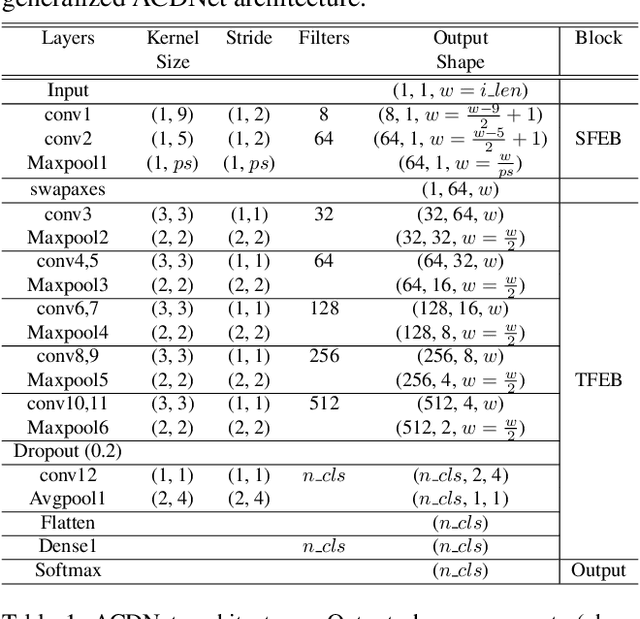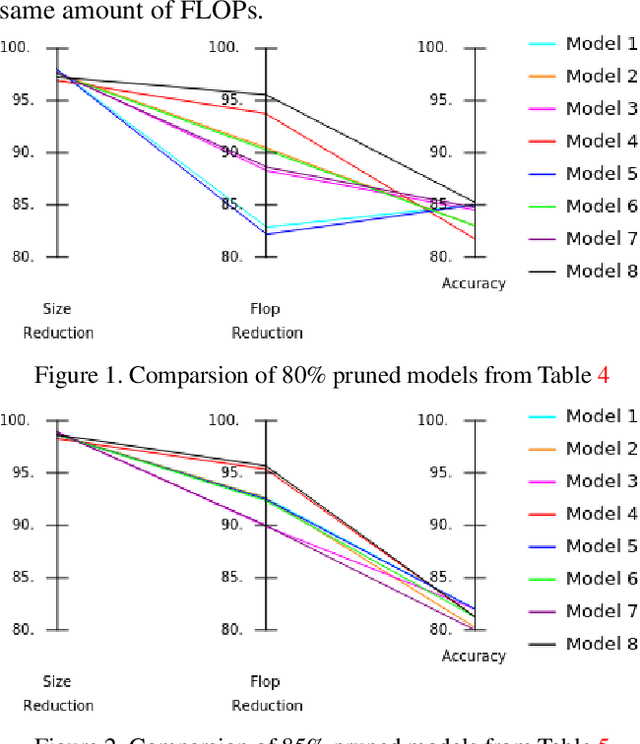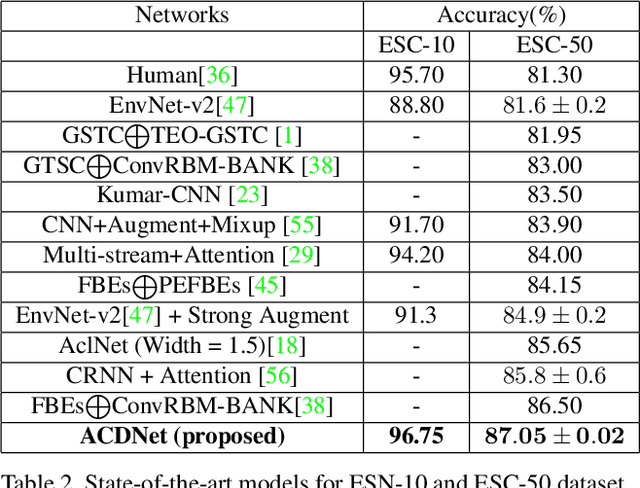Ian Thomas West
Environmental Sound Classification on the Edge: A Pipeline for Deep Acoustic Networks on Extremely Resource-Constrained Devices
Apr 06, 2021



Abstract:Significant efforts are being invested to bring state-of-the-art classification and recognition to edge devices with extreme resource constraints (memory, speed and lack of GPU support). Here, we demonstrate the first deep network for acoustic recognition that is small enough for an off-the-shelf microcrocontroller, yet achieves state-of-the-art performance on standard benchmarks. Rather than handcrafting a once-off solution, we present a universal pipeline that converts a large deep convolutional network automatically via compression and quantization into a network for resource-impoverished edge devices. After introducing ACDNet, which produces above state-of-the-art accuracy on ESC-10 (96.65%) and ESC-50 (87.1%), we describe the compression pipeline and show that it allows us to achieve 97.22% size reduction and 97.28% FLOP reduction while maintaining close to state-of-the-art accuracy (83.65% on ESC-50). We describe a successful implementation on a standard off-the-shelf microcontroller and, beyond laboratory benchmarks, report successful tests on real-world data sets.
 Add to Chrome
Add to Chrome Add to Firefox
Add to Firefox Add to Edge
Add to Edge